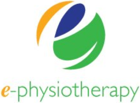Dance Injuries
Dancers frequently have pain and dysfunction in many different joints. This is due to the demands placed on their body which require extremes of flexibility, control, coordination, strength and endurance. Many dancers are hyper-flexible as this helps them to move their bodies into the extremes of range that they require for some forms of dance. [...]
Muscle Tears
Muscle tears can happen spontaneously, due to trauma or sport and leisure activites. The most common area for Spontaneous muscle tears is in the shoulder rotator cuff, especially as people get older. Calm muscle (gastrocnemius and soleus) tears are commonly caused during sports such as running or athletics. They can even happen with walking, more [...]
Muscle Weakness
Weakness can occur in muscles after injury or gradually from postural & movement habits. Common muscles affected by weakness are: Deep neck flexors (Longus Capitis & Longus Colli) Shoulder rotator cuff muscles (Infraspinatus, Supraspinatus, Subscapularis), Scapula muscles (Serratus Anterior Spinal core muscles (Transversus Abdominis & Lumbar Multifidus) Hip abductors (Gluteus Minimus & Medius), Hip external [...]
Orthopaedic Conditions or Post Orthopaedic Surgery
Joint replacements, fractures (with or without internal fixation), arthroscopy (key hole surgery), anterior cruciate ligament repair, knee meniscal repairs, shoulder rotator cuff repairs, and spinal surgery can all benefit from input from a physiotherapist. Gradually increasing the complexity of exercises post surgery can help you return to your activites of daily living (ADLs) and sport. [...]
Low Back Pain
A full assessment by a physiotherapist is needed to determine the cause of and best treatment for low back pain. However, most low back pain is due to poor sitting posture and lifestyle issues. Sitting for long periods, frequent bending and not enough general exercise can be enough to cause low back pain. This may [...]

